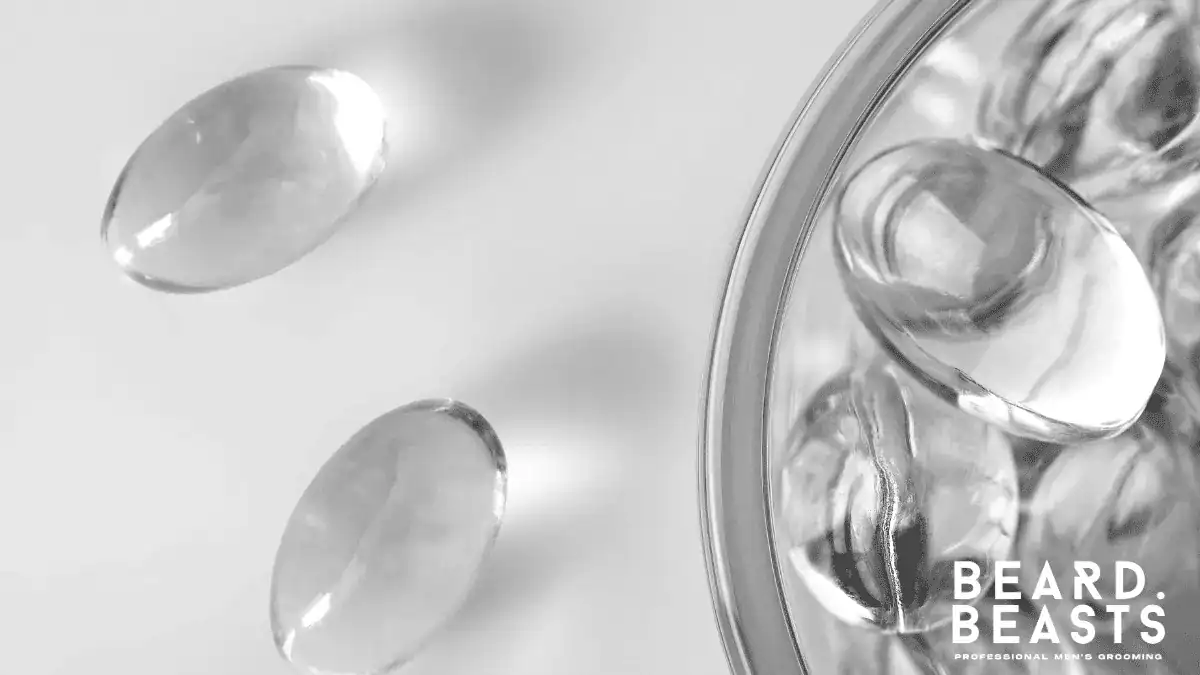Have you ever wondered, How long does it take to grow a mustache? You’re not alone! Growing a mustache is a journey many embark upon, but few understand the intricacies involved. It’s not just about waiting for hair to appear above your lip; it’s a fascinating process influenced by various factors, from genetics to lifestyle.
Embarking on the mustache-growing journey can be both exciting and perplexing. For some, it’s a rite of passage, a symbol of maturity and style. For others, it’s about embracing a new look or participating in events like Movember, raising awareness for men’s health issues. Whatever your reason, understanding the timeline and what affects mustache growth is essential.
In this introduction, we’ll dive into the world of mustache cultivation. We’ll explore what to expect during the growth process, debunk common myths, and offer insights into the factors that determine how quickly and fully your mustache will grow. Whether you’re aiming for a subtle mustache or a full, luxurious handlebar, this guide will equip you with the knowledge to start your mustache-growing adventure with confidence.
Stick around as we unravel the mysteries behind mustache growth, providing you with valuable tips and tricks to achieve your desired look. Let’s embark on this hairy quest together!
The Basics of Mustache Growth
Growing a mustache is a unique experience, and understanding the basics is key. Many eagerly ask, How long does it take to grow a mustache? but the answer isn’t one-size-fits-all. It involves understanding the factors influencing growth and the typical time frame involved. Let’s delve into these aspects to give you a clearer picture.
What Influences Mustache Growth?
Several elements play a crucial role in how your mustache grows:
- Genetics: Your genes are the primary determinant of your mustache’s characteristics, including its thickness, color, and growth pattern. If the men in your family typically have thick, full mustaches, chances are you will too.
- Age and Hormones: Mustache growth is closely tied to hormonal changes. Testosterone, the male hormone, significantly impacts facial hair development. Younger men and those experiencing hormonal fluctuations may notice variations in growth rate and density.
- Health and Nutrition: A balanced diet rich in vitamins and minerals contributes to overall hair health. Protein, vitamins A, C, E, and B vitamins, and minerals like zinc and iron are particularly beneficial for hair growth.
- Lifestyle Factors: Stress, smoking, and poor sleep can negatively affect hair growth. Conversely, regular exercise and a healthy lifestyle can promote better growth.
- Skin Care: The condition of your skin under the mustache can impact hair growth. Regular cleansing and hydration can encourage healthier and possibly faster hair development.
Understanding these factors helps set realistic expectations and informs the steps you can take to optimize your mustache growth.
Average Time Frame for Growing a Mustache
Now, to the burning question: How long does it take to grow a mustache? Typically, it takes about two to six months to grow a noticeable mustache. However, this timeline can vary widely based on the factors mentioned above.
During the first few weeks, you might only notice sparse, thin hair. This stage is often the most challenging, as the mustache might look uneven or patchy. Patience is crucial here.
As you approach the one to two-month mark, the mustache becomes more defined. This is when you can start experimenting with different styles and grooming techniques.
By the third month and beyond, most men will see their mustache reach its full potential, although it can continue to thicken and fill out over time.
Remember, every mustache journey is unique. While some might see rapid growth, others may need to wait longer to achieve their desired look. Embracing the process and understanding these basics will make your mustache-growing experience more enjoyable and fulfilling.
Stages of Mustache Development
Growing a mustache is a process that unfolds in stages. If you’re asking, How long does it take to grow a mustache, it’s crucial to understand these stages to set realistic expectations and appreciate the journey. Let’s walk through the phases of mustache development, from the first signs of growth to achieving a full mustache.
The Initial Growth Phase
The initial phase is all about patience. Here’s what to expect:
- The Starting Line: This phase begins with the first signs of facial hair, often during adolescence. The timing varies widely among individuals.
- Sparse and Uneven Growth: In the first few weeks, the mustache may appear sparse and uneven. This is normal and should not be a cause for concern.
- Texture and Color Variations: The hair might be softer and lighter in color compared to later stages. The texture can also change as the mustache matures.
- Managing Expectations: It’s important to manage expectations during this phase. Growth can seem slow, and the mustache might look different from your final goal.
Transitioning to Noticeable Growth
As you move past the initial phase, changes become more evident:
- Increased Density: The mustache begins to grow denser, and the hairs become more noticeable.
- Texture and Color Develop: The hairs may darken and coarsen, taking on the characteristics of mature facial hair.
- Grooming Considerations: This is a good time to start experimenting with grooming techniques. Trimming and shaping can encourage a neater appearance and can influence how your mustache eventually looks.
- Patience and Care: Continual care is key. A regular grooming routine can make this transitional phase more manageable and enjoyable.
Achieving Full Mustache Growth
The final stage is where your patience pays off:
- Fullness and Definition: The mustache reaches its full potential in terms of density and coverage. The hairs are coarser and more robust.
- Styling Options: With a fully grown mustache, you have the freedom to experiment with different styles. Whether it’s a classic handlebar or a simple, neat trim, the choice is yours.
- Maintenance: Regular maintenance becomes crucial to keep your mustache looking its best. This includes trimming, washing, and possibly using products like mustache wax.
- Enjoying the Results: After navigating the earlier stages, now is the time to enjoy the results of your dedication. A well-groomed mustache can be a source of pride and a defining feature of your personal style.
Each stage of mustache development brings its own challenges and rewards. Understanding these phases helps in appreciating the journey of growing a mustache, reminding us that good things often take time. Stay patient, care for your mustache, and embrace each stage as you progress towards your goal.
Factors Affecting Mustache Growth
When pondering the question, “How long does it take to grow a mustache?” it’s important to understand the factors that influence its growth. Mustache development is not just about time; it’s shaped by genetics, age, hormones, and lifestyle choices. Let’s explore these factors to gain a better understanding of mustache growth.
Genetics and Mustache Growth
The genetic lottery plays a significant role in determining your mustache’s characteristics. Here’s how:
- Hair Texture and Color: Your genes dictate the texture (straight, wavy, or curly) and color of your mustache. These traits are inherited from your parents and can vary greatly from person to person.
- Growth Pattern and Density: Some men might find their mustache grows evenly across their lip, while others may experience patchy or uneven growth. This is largely determined by your genetic makeup.
- Growth Speed: How quickly your mustache grows is also influenced by genetics. Some men might achieve a full mustache in a few weeks, while others might take months.
Understanding your genetic predisposition can help set realistic expectations for your mustache growth journey.
Age and Hormonal Factors
Age and hormones significantly impact mustache growth:
- Puberty: The onset of puberty marks the beginning of facial hair growth in males. This is when the body starts producing more testosterone, which stimulates hair follicles.
- Testosterone Levels: Higher levels of testosterone generally lead to faster and denser mustache growth. However, the sensitivity of hair follicles to testosterone also plays a role.
- Age-Related Changes: As men age, their hormonal balance changes, which can affect mustache growth. Some men may notice increased growth with age, while others might see a decrease.
Understanding these factors can provide insights into the changes in mustache growth you might experience over time.
Lifestyle and Health Considerations
Your lifestyle and overall health also influence mustache growth:
- Diet and Nutrition: A diet rich in proteins, vitamins, and minerals is essential for healthy hair growth. Nutrients like biotin, niacin, and vitamins A, E, and C are particularly important.
- Exercise: Regular exercise can boost testosterone levels and improve blood circulation, both of which can positively affect mustache growth.
- Stress Management: High stress levels can lead to hair loss and slow hair growth. Managing stress through activities like meditation, yoga, or regular exercise can be beneficial.
- Sleep Quality: Adequate sleep is crucial for overall health, including hair growth. Poor sleep can negatively impact hormonal balance and, subsequently, mustache growth.
- Smoking and Alcohol Consumption: Smoking can impede blood flow to hair follicles, while excessive alcohol consumption can lead to nutritional deficiencies. Both can negatively affect hair growth.
By understanding and managing these factors, you can create an optimal environment for your mustache to grow. Remember, each person’s experience is unique, and what works for one may not work for another. Embrace your individual journey and enjoy the process of growing your mustache!
How to Encourage Healthy Mustache Growth
If you’re on a quest to grow a mustache, understanding how to encourage healthy growth is crucial. Many wonder, How long does it take to grow a mustache? The answer partly lies in how well you care for it. From nutrition to grooming, let’s explore the ways to promote a healthy and thriving mustache.
Proper Nutrition and Hydration
Your diet plays a vital role in mustache growth:
- Balanced Diet: A well-balanced diet rich in proteins, vitamins, and minerals is essential. Hair is primarily made of protein, so foods like lean meats, beans, and nuts are beneficial.
- Vitamins and Minerals: Vitamins A, C, E, and the B vitamins contribute to hair health. Iron, zinc, and omega-3 fatty acids are also important. Incorporate fruits, vegetables, whole grains, and fish into your diet.
- Hydration: Keeping yourself well-hydrated is crucial. Water aids in the transport of nutrients and minerals to hair follicles, promoting healthy hair growth.
Grooming and Maintenance Tips
Proper grooming is key to a well-maintained mustache:
- Regular Trimming: Regular trimming helps maintain the shape of your mustache and encourages healthier growth. It also removes beard split ends, which can hinder growth.
- Cleansing and Moisturizing: Just like scalp hair, facial hair needs to be kept clean. Use a mild wash for facial hair like our Ultra Soft Beard Wash. Moisturizing the skin underneath with a good quality beard oil will prevent dryness and itching.
- Combing and Styling: Regularly combing your mustache with a stainless steel mustache comb helps train the hairs to grow in a desired direction and can prevent tangling. Use styling products like mustache wax for better control and to experiment with different styles.
Common Myths About Mustache Growth
Let’s debunk some common myths:
- Shaving Makes It Grow Faster: The belief that shaving encourages faster growth is a myth. Hair growth occurs beneath the skin, so cutting the hair at the surface doesn’t affect its growth rate.
- Everyone Can Grow a Thick Mustache: Genetics play a significant role in determining the thickness and style of your mustache. Not everyone can grow a thick, bushy mustache, and that’s perfectly okay.
- More Products Mean Better Growth: While certain products can aid in maintenance and styling, overusing products or using too many different kinds won’t necessarily improve growth.
In conclusion, growing a healthy mustache requires a combination of good nutrition, proper grooming, and patience. Understanding and implementing these beard grooming tips can make your mustache-growing journey more successful and enjoyable. Remember, every mustache is unique, so embrace your individual growth process and enjoy the journey!
Common Challenges in Growing a Mustache
Growing a mustache isn’t always a smooth journey. Many aspiring mustache-growers find themselves asking, “How long does it take to grow a mustache?” only to realize that the process can bring its own set of challenges. Understanding how to tackle these challenges can make the journey more manageable and rewarding.
Dealing with Patchiness
Patchiness is a common concern when growing a mustache. Here’s how to handle it:
- Patience is Key: Often, patchiness is more noticeable in the initial growth stages. Give it time — as the mustache grows longer, the patches may become less apparent.
- Grooming Techniques: Proper grooming can make a big difference. Regularly trimming and combing can help in blending the patches with the rest of the mustache.
- Styling to Your Advantage: Choose a mustache style that works well with your growth pattern. Sometimes, a certain style can cleverly disguise patchy areas.
- Healthy Lifestyle Choices: A healthy diet and lifestyle can sometimes improve hair growth, potentially reducing patchiness over time.
Managing Growth Rate Variations
Growth rate variations are another challenge to navigate:
- Understanding Growth Cycles: Hair grows in cycles, and not all hairs are in the same phase at the same time. This can cause variations in growth rates.
- Genetic Factors: Your genetic makeup largely determines your hair growth rate. Comparing your growth to others’ isn’t always productive as each person’s growth rate is unique.
- Health and Nutrition: Again, a balanced diet rich in essential nutrients can support healthier hair growth. Ensuring your body gets what it needs can sometimes help even out growth rate variations.
- Stress Management: High stress levels can impact your hair growth cycle. Managing stress through relaxation techniques, exercise, or hobbies can be beneficial.
Growing a mustache can be a test of patience and persistence, especially when facing challenges like patchiness and varying growth rates. Understanding these issues and knowing how to address them can help you navigate the process more effectively. Remember, growing a mustache is a personal journey, and embracing its unique challenges can make the experience even more rewarding.
FAQs: Answers to Common Questions About Growing a Mustache
Growing a mustache raises many questions, especially for first-timers. To help you on your journey, let’s address some frequently asked questions about mustache growth. These answers will provide clarity and guidance as you grow and groom your mustache.
How long does it take to grow a full mustache?
The time it takes to grow a full mustache varies greatly among individuals. On average, it can take anywhere from two to six months. Factors like genetics, age, and health play a significant role in determining the growth rate.
Can I make my mustache grow faster?
While you can’t drastically speed up your mustache growth, maintaining a healthy diet, exercising regularly, and practicing proper grooming can promote healthier and potentially faster growth.
Why is my mustache growing unevenly?
Uneven growth is often due to genetic factors. Hair growth cycles and the distribution of hair follicles can cause some areas to appear fuller than others. With time and length, unevenness usually becomes less noticeable.
How can I deal with a patchy mustache?
Patience is key with patchy mustaches. Allowing the hair to grow longer can help cover patches. Grooming and choosing a suitable style for your growth pattern can also make a significant difference.
Should I use special products for my mustache?
While not essential, specific products like mustache waxes, oils, and balms can help in styling, moisturizing, and maintaining the health of your mustache. Choose products that suit your skin and hair type.
How often should I trim my mustache?
This depends on your desired style and the growth rate of your mustache. A general rule of thumb is to trim every few weeks to maintain shape and remove split ends.
Does shaving increase mustache thickness?
No, this is a common myth. Shaving does not affect the thickness or rate of hair growth. Thickness is determined by genetics and hormonal factors.
Is it normal for a mustache to itch while growing?
Yes, itchy facial hair is a common experience, especially in the early stages of growth. This usually subsides over time. Using a moisturizer or beard oil can help alleviate itchiness.
By addressing these common queries, we hope to ease your journey in growing a mustache. Remember, every mustache is unique, and so is every growing experience. Embrace your individual journey, and don’t hesitate to experiment and find what works best for you. Happy mustache growing!

Concluding How long does it take to grow a mustache?
As we conclude this guide on growing a mustache, the key takeaway is clear: patience and consistency are your best allies. Whether you’re just starting out or are midway through the journey, understanding the phrase “How long does it take to grow a mustache?” involves more than just marking days on a calendar. It’s about nurturing, caring for, and embracing the process.
Patience is Paramount
Mustache growth is not an overnight phenomenon. It takes time for the hair to grow in thickness and coverage. During this period, it’s crucial to be patient and not get discouraged by initial patchiness or slow growth.
Consistent Care Matters
Regular grooming and maintenance play a significant role in achieving a healthy and well-styled mustache. Trimming, cleansing, and moisturizing are not just about aesthetics but also about the health of your facial hair and skin.
Healthy Lifestyle, Healthy Mustache
A balanced diet, adequate hydration, and a healthy lifestyle contribute significantly to the overall health of your hair. Vitamins, minerals, and proper nutrition are essential for robust mustache growth.
Personal Growth Journey
Each person’s mustache journey is unique. Genetics, age, and hormonal factors mean that everyone’s experience will be different. Embrace your individual journey and remember that your mustache is a reflection of your unique self.
Busting Myths and Misconceptions
It’s important to differentiate fact from fiction. Common myths, like shaving to increase thickness, have been debunked. Focus on what truly works — proper care and patience.
In summary, growing a mustache is an adventure that requires time, dedication, and care. It’s a process that can teach patience and offer a rewarding experience in personal grooming and style. Enjoy every stage, from the first signs of growth to achieving your desired look. Remember, a great mustache is not just about the hair on your lip; it’s about the journey you take to get there. Happy mustache growing!





